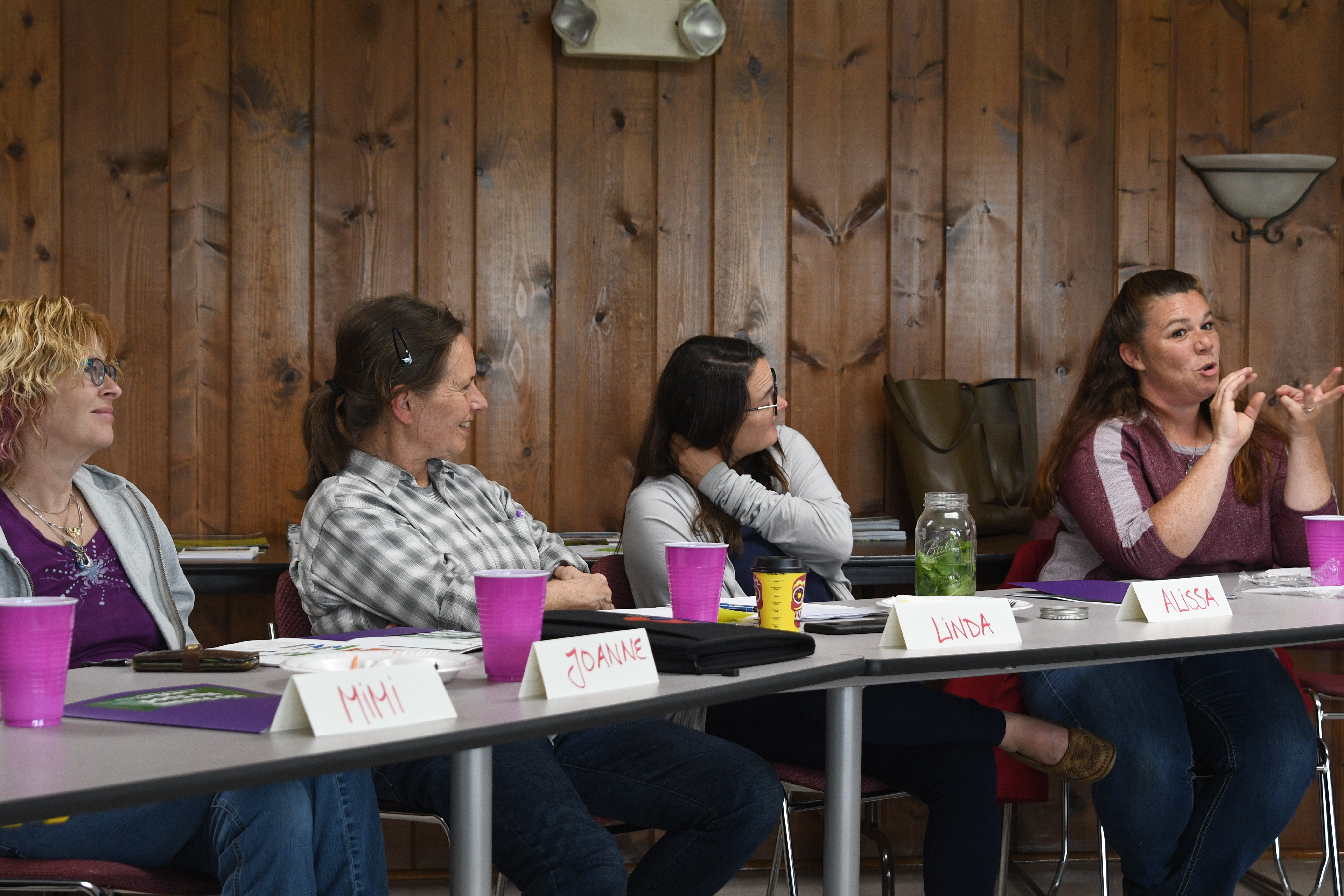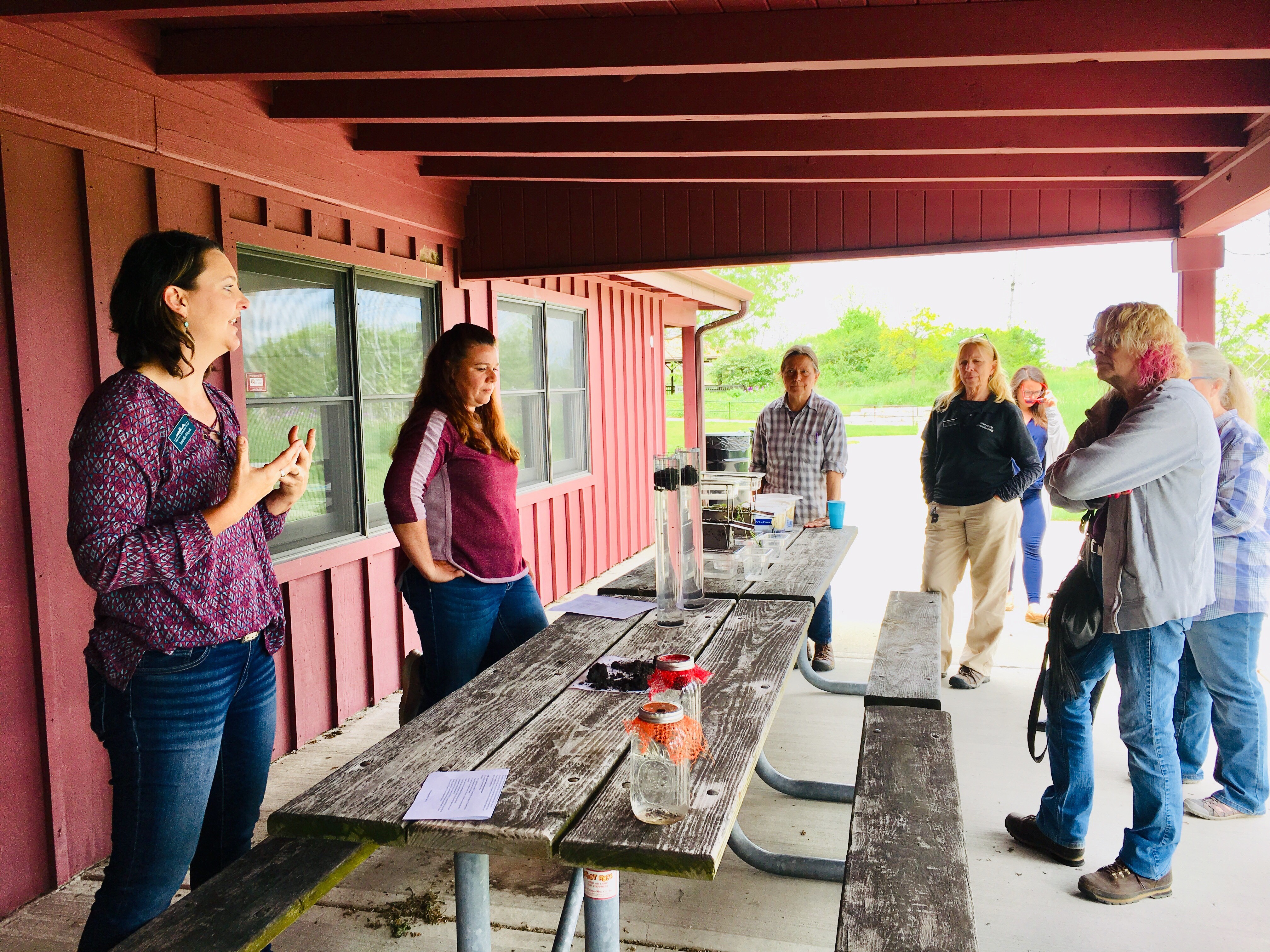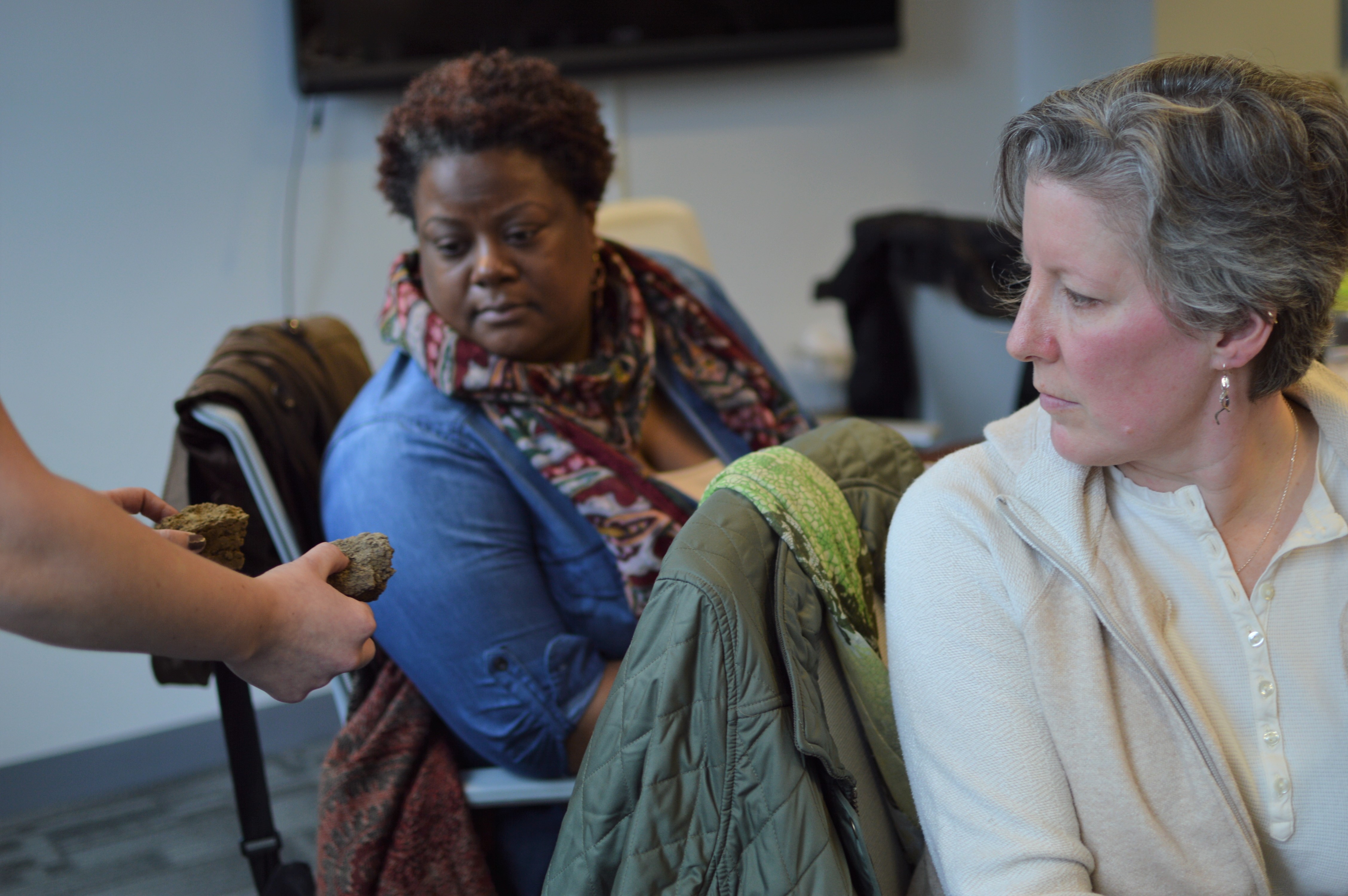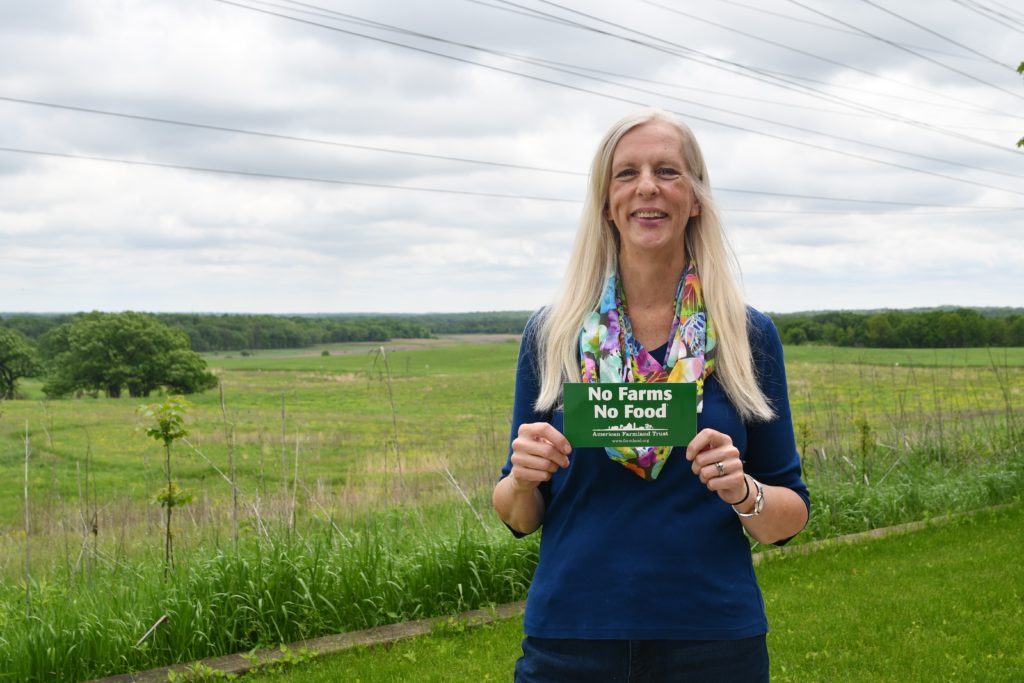Reaching urban women farmland owners is key to conservation

Many family farms are at least co-owned by non-farming heirs, increasingly women, who have moved away from the land but desire to keep the land in the family.
This summer AFT wrapped up a series of nine women learning circles over three years with women who live and work in cities but own family land out in the country and lease it to local farmers.
The circles were part of a Conservation Innovation Grant, awarded in 2016, from the USDA Natural Resources Conservation Service to Women, Food and Agriculture Network, WFAN, alongside several partners including AFT. WFAN, along with a network of partner organizations in seven Midwestern states, had a goal to engage women farmland owners in urban centers– i.e. women who live and work in cities, but own family land out in the country and lease it to local farmers. American Farmland Trust worked in the Midwest’s largest urban center – Chicago.

During the series of learning circles in Chicago, we learned a great deal from these landowners, as we always do when we bring them together! We learned through this series of learning circles that women who are physically further away from the land still care deeply about their land’s health and feel a responsibility to steward it well.
At the learning circles we demonstrated that landowners can have a voice in conservation decisions and help their farmers try new practices. Plus, we informed landowners that an investment in soil health and other conservation practices can increase the value and productivity of the asset they hold.
We also learned that women landowners who are geographically separated from the land are often not aware of the resources available to them to improve their land.
We first recognized this in recruiting — this audience is difficult to find because most of the women who attended didn’t necessarily recognize themselves in our initial outreach efforts. Not being in the community where their land is, they were often unaware of the resources like, AFT’s learning circles, available to them to implement conservation and work with their farmers. In our evaluations after each circle, most women told us that nearly all the soil health information was new to them, and so were the agencies that could help, like USDA’s Natural Resources Conservation Service.

Jean Eells, project evaluator with E Resource Group, has been collecting demographic information and surveys from the women who attended learning circles across WFAN and the partnerships with this grant. Jean said, “Women who attend our rural circles with the same content do walk away with good information whether they’re producers or landowners, and much of the time they may also be unaware of the resources available. The urban audience for this grant did learn more about the agencies and resources because they were very unfamiliar with what was available to them.”
As with our more traditional learning circles held in rural areas, the data and our experiences tell us that the learning circle method works. Women landowners thrived in the welcoming environment of in-depth discussion and loved meeting other women like them – in every learning circle we all have something to learn and we all have something to teach.

Like the women we’ve worked with who live near their land in rural communities, attendees at our learning circles felt empowered by their new-found knowledge on soil health and motivated to start the conversation with their farmer about current and future management practices. Many of the women also expressed how much they enjoyed meeting with other women and the informal peer-to-peer discussion format of the circles. These findings complement what we know from AFT’s research on how to increase conservation through women. Overall, we consistently find that learning circles work and lead to conservation action on the land.
Knowing that the learning circles work with an urban audience as well will help AFT further develop its Women for the Land initiative by engaging a broader base of women landowners who can take conservation action on their land.

